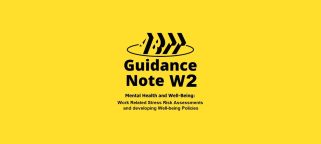ABTT Seminar: Guidance Note W2 “Work Related Stress & Well-being Policies” with Mig Burgess-Walsh
Member’s price FREE
Non-member’s price FREE
25 November 2022 | 12:00 pm - 1:00pm

Join this discussion about Guidance Note W2 and understanding the hazards contributing towards work-based stress and mitigating against them.
Guidance Note W2 provides guidance for risk assessing stress in the workplace. It is closely aligned with the HSE’s current advice provided as part of the Working Minds campaign. The guidance note offers concise guidance and a step-by-step methodology by which to begin risk assessing work related stress. Guidance Note W2 is part of the Code of Practice for the Theatre Industry in the UK which is produced by the ABTT with the support of the national Theatre Safety Committee and which is recognised by the HSE as an Established Standard.
Work-related stress is a major cause of occupational ill health and can cause severe physical and psychological conditions in workers. It can also lead to poor productivity and human error, increased sickness absence, increases in accidents, high staff turnover and poor performance. HSE statistics show that work-related stress is a significant issue with more than 15.4 million working days lost as a result of stress, anxiety or depression. This equates to an estimated cost of £5.2 billion. Stress, anxiety and depression are the number one reasons for work related illness in the UK.
Join this discussion a with ABTT Co-Chair Mig Burgess-Walsh where she will discuss understanding the hazards contributing towards work-based stress and how to mitigate against them.
Employers have a legal duty to protect employees from stress at work by doing a risk assessment and acting on it. We’ll discuss how this Guidance Note offers assistance, guidance, advice & best practice in how to consider and adopt more proactive approaches and policies to support the welfare and well-being of staff under your employment. Thus, contributing to your planning and risk assessment management on work related stress and helping you to develop a mental health and well-being policy.
